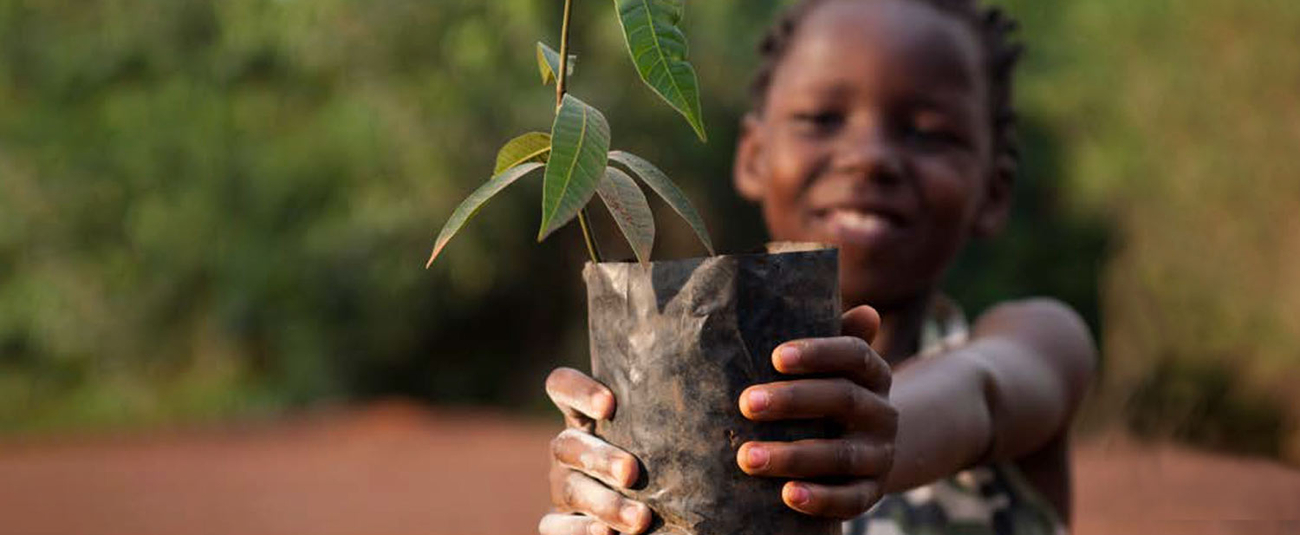
Deliver financing for adaptation and resilience in Africa, global leaders urge ahead of COP26
27 October, 2021Ahead of key climate talks at COP26 in Glasgow, African leaders and development partners have called for greater funding towards climate adaptation.
The calls were made at the launch of the Global Center on Adaptation (GCA) report on adaptation trends in Africa. The report was launched on Tuesday in Nairobi on the inaugural Adaptation Acceleration Day.
Kenyan President Uhuru Kenyatta warned in his remarks at the launch that Africa’s gross domestic product (GDP) risks contracting by up to 30 percent by the year 2050, in the absence of urgent climate change adaptation action.
“While it is relatively more difficult to design and implement adaptation projects and while fewer resources are currently available for adaptation, we should not lose sight of the fact that adaptation is, without doubt, smart economics,” President Kenyatta added.
Leaders said developed countries had provided well below the threshold for Africa’s adaptation needs.
In his inaugural annual lecture on Adaptation Acceleration Day, GCA Chief Executive Officer Patrick Verkooijen underscored the urgent need to combat climate change and its impacts.
Even if the Paris Climate Agreement goals are achieved, the economic costs in Africa will be enormous, he said. “Climate change is a new and significant negative pressure on the sovereign credit ratings of African countries. As impacts increase, if we don’t adapt effectively, these will increase the cost of borrowing. That would reduce the continent’s investment potential.”
In his remarks given via video message, African Development Bank President Dr. Akinwumi A. Adesina called for increased finance for adaptation in Africa, given that much of climate funding goes towards mitigation.
“With only a few days to go until the world comes together in Glasgow for COP26, there couldn’t be a better moment to present Africa’s climate needs to the world,” Adesina said.
The African Development Bank, in partnership with the Global Center on Adaptation, established the Africa Adaptation Acceleration Program (AAAP) to mobilize $25 billion. Adesina said $25 billion “may seem like a lot of money but it is actually not enough to meet Africa’s adaptation needs, which are estimated to be at $7 billion to $15 billion per year.”
The AAAP program aims to promote climate-smart digital technologies to enhance agriculture and food security, and support the development of climate-resilient urban infrastructure. The initiative also has its sights set on job creation and empowering the youth to become entrepreneurs in climate adaptation and resilience. In addition, it will roll out innovative financial initiatives for Africa to address the nexus of climate change and Covid-19.
Patricia Espinosa, Executive Secretary of the United Nations Framework Convention on Climate Change (UNFCCC), the host of next week’s COP26 in Glasgow, echoed the message regarding the importance of finance for adaptation.
“Key to success in adaptation and resilience — like so many other issues related to climate change — is adequate finance,” she said.
Former UN Secretary General Ban Ki-moon, International Monetary Fund Managing Director Kristalina Georgieva, and World Trade Organisation Director General, Ngozi Okonjo-Iweala, also spoke at the launch of the report.
The report offers a snapshot of present and future prospects for the African continent in light of climate change. It documents how individuals and institutions in the African and international policy space can finance, design, and implement adaptation plans to support the livelihoods of Africans.